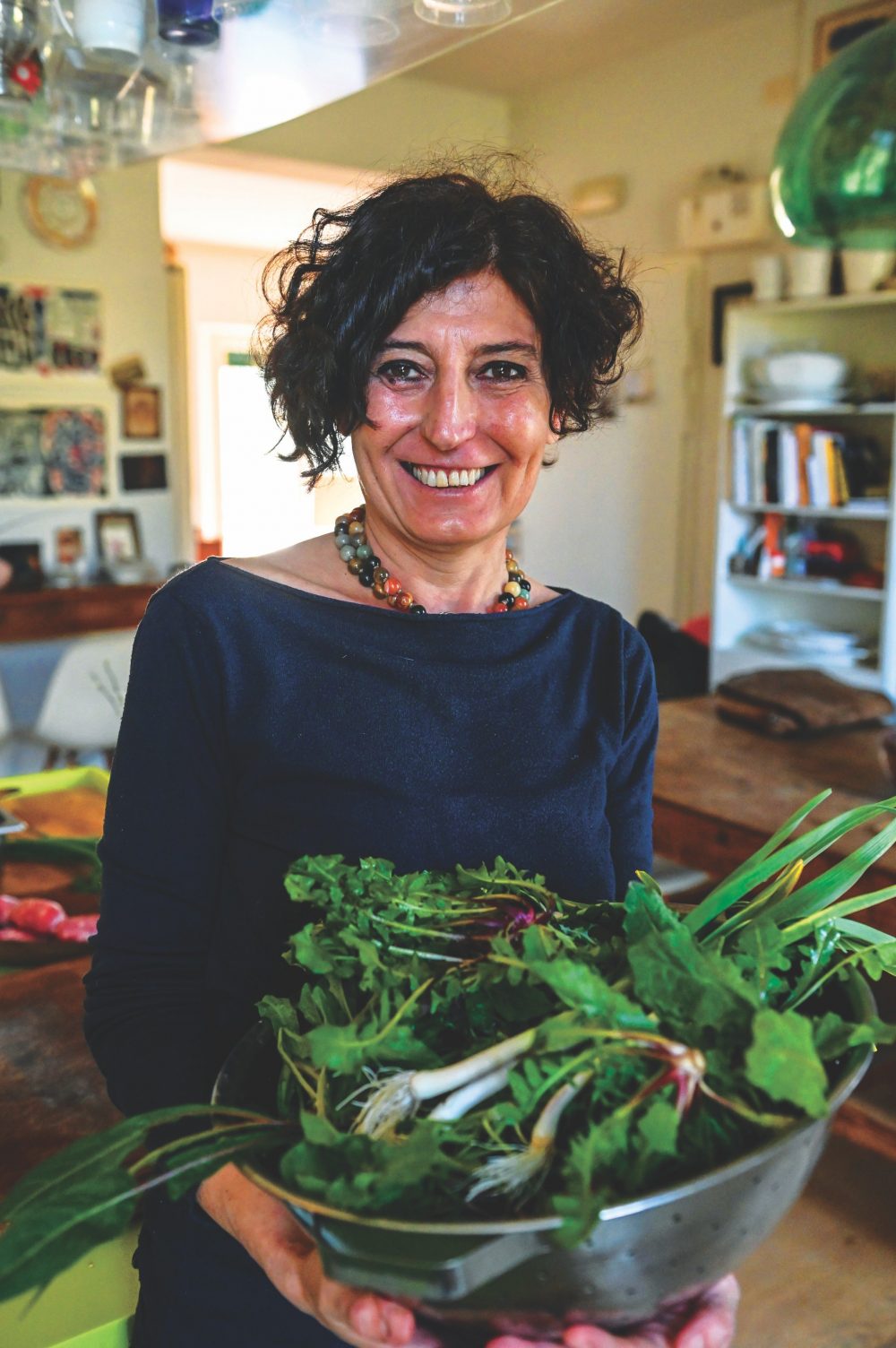A basket hanging from the crook of one arm, Silvia Buitoni stoops into the overgrowth, running her free hand through vivid patches of green that blanket the banks along this babbling, shallow stretch of Italy’s Tiber River. She is foraging for wild edible herbs—chicory, radicchio, dandelion, arugula—as she was taught by her mother and grandmother.
Many before them did the same. Though mossy, quiet and shaded, this elbow of riverside also is a historic thoroughfare, a tiny part of the Via Francigena, a path that meanders from the cathedral in Canterbury, England, across Europe to the heart of Rome. Pilgrims have trod its 1,700 kilometers—and feasted on its greenery—since at least the 8th century.
“We have a park in the center of town and it’s very beautiful, but it is different. This is natural. Earthy,” Buitoni says. It’s a term she’d use repeatedly to describe Umbria, its land, its culture, its people. Most importantly, its food.
It’s why I’d come to this central region of Italy just south of Tuscany, where meals are built around robust brown Castelluccio lentils; the sorts of bitter, wild greens that now overflowed in Buitoni’s basket; and peppery olive oil that we’d soon douse them all with. Rustic, visceral cooking that makes the most of whatever is on hand.

Back at Buitoni’s sunlit apartment in Perugia, the hilltop heart of the region, windows on one side overlook an olive grove, fog-filled valleys that stretch to Assisi on the other. She’d offered to teach me two dishes that typify everything Umbrian: zuppa de lenticchie, a simple lentil soup, and torta al testo, a quick flatbread stuffed with sausage and wild greens.
As she begins cooking, the conversation moves quickly to aroma. Buitoni—and yes, she is of that Buitoni family, which sold the pasta company decades ago—is fascinated by the power of food aromas and memory. So much so, she wrote a book about it. And as her kitchen fills with sweet richness from vegetables, savory sausage and warm bread, it’s easy to understand why. It is comfort and caring. It is social and jovial. It is everything we love about Italian food.
She starts with the soup, first making a soffritto of wild scallion, spring garlic, leggy celery as much about the leaves as the stalks, a carrot and ample olive oil. It is, as she said, earthy, sweet and rich. Then the lentils, eaten always, but celebrated particularly on New Year’s Day as a symbol of luck because they resemble coins.
“Every family has their recipe for this. I grew up eating this,” Buitoni says. “Some people put olive oil or Parmesan in the dough and it becomes richer. But I don’t. The herbs are very potent. I like that.”
The mixture cooks with little liquid for a while, then tomato paste and just enough water are added to create a rich, robust broth. Soon a hearty, yet surprisingly light soup is ready. The lentils, similar in texture to France’s green lentils du Puy, hold their shape, balancing a delicately sweet soup with nutty-savory flavor and toothsome texture.
It’s a lesson in maximizing simple, flavorful ingredients. Also in balancing earthy and sweet. I love it.
We then prepare the torta al testo, a reminder yet again that cultures around the world long ago sussed out how to get fresh bread on the table any day of the week. To wit, we spend more time on the fillings than on the bread itself. And neither side of the equation requires nearly as much effort as the splendidly delicious results suggest.
The dough comes together in minutes, a mixture of flour, water and baking powder. It rests briefly, then is formed into rounds and cooked over low heat in a skillet (in lieu of the more traditional stone). Meanwhile, those wild herbs are wilted with olive oil, garlic and savory anchovies. Garlicky sausages, split open, brown in a skillet nearby.
When the flatbreads are done—barely crispy outside, doughy and tender inside—Buitoni splits them like a pita pocket, stuffing them with the greens and sausages. The result is, simply, the ideal sausage sandwich. Warm bread wrapped around seared meat, the richness of it cut by the sweet bitterness of the wild herbs.
As Buitoni said, earthy. All of it. Deliciously so.





